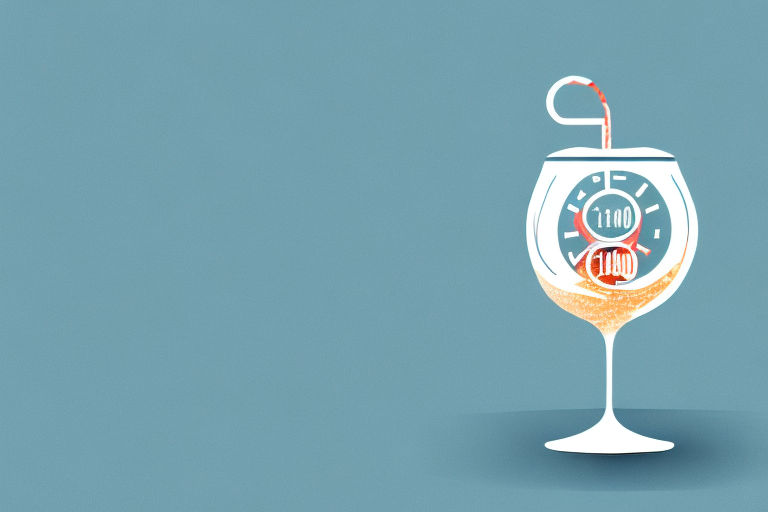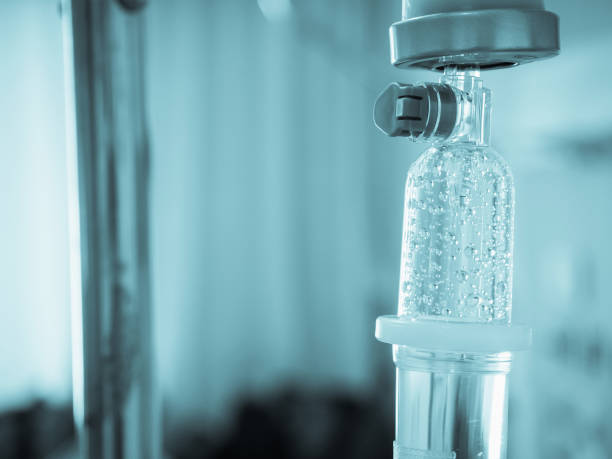How Long Does Alcohol Stay in Your System and How Long Do You Stay Drunk?

Have you ever wondered how long alcohol stays in your system or how long it takes for you to sober up? Whether you're a casual drinker or a seasoned pro, understanding how alcohol affects your body can be incredibly important. Let's explore the science behind alcohol absorption, metabolism, and detection methods to better understand how long alcohol can stay in your system.
Understanding Alcohol Absorption and Metabolism
Before we can examine how long alcohol stays in your system, we need to understand how it's absorbed and metabolized in the body. When you drink alcohol, it's absorbed into your bloodstream through the walls of your stomach and intestines. From there, it's transported to your liver, which is responsible for metabolizing the alcohol into chemicals that can be eliminated from your body.
How Alcohol is Absorbed in the Body
The rate at which alcohol is absorbed into your bloodstream can be affected by a variety of factors. These can include the type of alcohol you're drinking, the amount you've consumed, and whether or not you've eaten recently. Generally speaking, drinking on an empty stomach can lead to faster absorption rates.
Another factor that can affect alcohol absorption is the concentration of alcohol in your drink. For example, a shot of hard liquor will be absorbed more quickly than a glass of beer or wine with the same alcohol content. This is because hard liquor has a higher concentration of alcohol per volume.
Additionally, the carbonation in some alcoholic beverages, such as beer and champagne, can also speed up absorption. This is because the carbon dioxide bubbles can cause the alcohol to be absorbed more quickly through the stomach lining.
Factors Affecting Alcohol Metabolism
Once alcohol is absorbed into your bloodstream, your liver begins breaking it down into other chemicals that your body can eliminate. The rate at which your body metabolizes alcohol can be affected by a number of factors, including your age, weight, and gender. Additionally, certain medications or health conditions can also impact how quickly your liver can process alcohol.
One factor that can affect alcohol metabolism is genetics. Some people have a genetic variation that causes them to produce less of the enzyme ADH, which is responsible for breaking down alcohol. This can lead to slower metabolism and a higher risk of alcohol-related health problems.
Another factor is the amount of alcohol you've consumed. Your liver can only process a certain amount of alcohol per hour, so drinking more than this amount can lead to a buildup of alcohol in your bloodstream and a longer period of intoxication.
The Role of the Liver in Alcohol Metabolism
Your liver is responsible for the majority of alcohol metabolism in the body. Specifically, enzymes in the liver called alcohol dehydrogenase (ADH) and aldehyde dehydrogenase (ALDH) work to break down alcohol into compounds that can be eliminated. However, if you consume more alcohol than your liver can process at once, the excess alcohol can accumulate in your bloodstream and lead to intoxication.
It's important to note that chronic alcohol consumption can damage the liver and impair its ability to metabolize alcohol. This can lead to a higher risk of liver disease and other health problems.
In conclusion, alcohol absorption and metabolism are complex processes that can be influenced by a variety of factors. By understanding how alcohol is processed in the body, you can make more informed decisions about your drinking habits and reduce your risk of alcohol-related health problems.
How Long Does Alcohol Stay in Your System?
Now that we have a better understanding of how alcohol is absorbed and metabolized, let's explore how long it can stay in your system. There are a few different factors that can impact how long alcohol can be detected in your body, including the type of alcohol you're drinking and the methods used for detection.
Blood Alcohol Concentration (BAC) Explained
One of the primary ways that alcohol is detected in the body is through a blood alcohol concentration (BAC) test. This test measures the amount of alcohol in your bloodstream at any given time. As you consume alcohol, your BAC increases. However, once you stop drinking, your BAC will begin to decrease as your liver metabolizes and eliminates the alcohol from your body.
It's important to note that your BAC can continue to rise even after you've stopped drinking. This is because alcohol takes time to be absorbed into your bloodstream. So, if you've consumed a large amount of alcohol in a short period of time, your BAC may continue to increase for up to an hour after you've stopped drinking.
Average Time for Alcohol to Leave the System
On average, your liver can metabolize roughly one standard drink per hour. This means that if you've consumed multiple drinks over the course of an evening, it can take several hours for your liver to process all of the alcohol in your system. In general, it's safe to assume that alcohol will stay in your system for at least a few hours after you've consumed your last drink.
However, it's important to keep in mind that this is just an average. The amount of time it takes for alcohol to be eliminated from your system can vary widely depending on a number of factors. For example, if you've consumed a large amount of alcohol, it may take your liver longer to process it all. Similarly, if you're older or have health problems, your liver may not be as efficient at metabolizing alcohol.
Factors Influencing Alcohol Elimination Time
The amount of time it takes for alcohol to be eliminated from your system can be impacted by a variety of factors. These can include your age, gender, weight, overall health, and how much alcohol you've consumed. Additionally, factors such as stress levels and sleep quality can also play a role in how quickly your liver can metabolize alcohol.
For example, women tend to have lower levels of the enzyme that metabolizes alcohol in their livers, which means that it can take longer for them to process alcohol than it does for men. Similarly, if you're overweight, your liver may not be as efficient at metabolizing alcohol as it would be if you were at a healthy weight.
In addition to these factors, the type of alcohol you're drinking can also impact how long it stays in your system. For example, drinks that are high in sugar or carbonation may be absorbed more quickly than those that are not. Similarly, drinks that are high in alcohol content may take longer to be metabolized than those that are lower in alcohol content.
Overall, there are many different factors that can impact how long alcohol stays in your system. While it's important to be aware of these factors, the most important thing is to always drink responsibly and never drive under the influence of alcohol.
How Long Do You Stay Drunk?
So, how long does it take for you to sober up after drinking? The answer to this question can vary depending on a variety of factors, including how much alcohol you've consumed and how quickly your body can process it.
It's important to understand what it means to be "drunk." Blood Alcohol Content (BAC) is the measure of the amount of alcohol in your bloodstream. You don't necessarily need to feel intoxicated to be classified as "drunk." In fact, even low BAC levels (between .02% and .05%) can lead to impaired judgment and reaction times. Generally speaking, the more alcohol you consume, the more impaired you're likely to become.
Defining Drunkenness: BAC Levels and Impairment
It's important to note that alcohol affects individuals differently, and there is no "one size fits all" answer to how long someone will stay drunk. BAC levels are influenced by a variety of factors, including weight, gender, and metabolism. For example, someone who weighs 120 pounds will have a higher BAC after drinking the same amount of alcohol as someone who weighs 180 pounds.
Additionally, the rate at which your body processes alcohol can be influenced by genetics and other factors. Some people have a genetic variation that causes them to metabolize alcohol more slowly, which can lead to higher BAC levels and longer periods of intoxication.
The Effects of Alcohol on the Brain and Body
Alcohol affects your brain and body in a variety of ways. It can lead to slowed reaction times, impaired coordination, and decreased inhibitions. When you drink alcohol, it is absorbed into your bloodstream and travels to your brain, where it affects the neurotransmitters that control your mood, behavior, and cognitive function.
Long-term alcohol consumption can lead to a range of health problems, including liver disease, cancer, and neurological damage. It's important to remember that alcohol is a drug, and like any drug, it can have serious consequences if used excessively or irresponsibly.
Factors Affecting the Duration of Intoxication
The duration of your intoxication can be impacted by a number of factors. These can include how much alcohol you've consumed, how quickly you've consumed it, and whether or not you've eaten recently. Additionally, factors such as stress levels and sleep quality can also play a role in your level of intoxication.
Drinking on an empty stomach can lead to a faster absorption of alcohol into your bloodstream, which can increase your BAC levels and lead to a longer period of intoxication. Eating a meal before drinking can help slow down the absorption of alcohol and reduce the duration of your intoxication.
It's important to remember that the only way to truly sober up is to allow your body time to metabolize the alcohol. Drinking coffee, taking a cold shower, or engaging in other "sobering up" techniques may make you feel more alert, but they will not lower your BAC levels.
Ultimately, the best way to avoid the negative effects of alcohol is to drink responsibly and in moderation. This means understanding your limits, pacing yourself, and avoiding situations where excessive drinking is encouraged or expected.
Alcohol Detection Methods and Timeframes
If you're concerned about how long alcohol can stay in your system, it's important to understand the various methods used for detection. Here are a few of the most common ways that alcohol can be detected:
Breathalyzer Tests
Breathalyzer tests measure the amount of alcohol present in your breath. This can be an accurate representation of your BAC levels, as alcohol in your bloodstream is eventually expelled through your lungs.
It's important to note that the accuracy of breathalyzer tests can be affected by a number of factors, including the type of breathalyzer used and any substances that may be present in your mouth or on your breath. For example, using mouthwash or chewing gum can cause a false positive reading on a breathalyzer test.
Additionally, the timeframe for which a breathalyzer test can accurately detect alcohol can vary depending on a number of factors, including your metabolism, the amount of alcohol consumed, and the time elapsed since your last drink.
Blood Tests
Blood tests are considered the most accurate way to measure BAC levels. However, they can be invasive and require a medical professional to administer.
It's important to note that the accuracy of blood tests can be affected by a number of factors, including the type of test used and any medications or substances that may be present in your bloodstream. Additionally, the timeframe for which a blood test can accurately detect alcohol can vary depending on a number of factors, including your metabolism, the amount of alcohol consumed, and the time elapsed since your last drink.
Urine Tests
Urine tests can be used to detect the presence of alcohol in your system. However, they are generally considered to be less accurate than breathalyzer or blood tests.
It's important to note that the accuracy of urine tests can be affected by a number of factors, including the type of test used and the time elapsed since your last drink. Additionally, urine tests can sometimes produce false positive results due to the presence of other substances in your system.
Hair Tests
Hair tests can detect the presence of alcohol metabolites in your hair follicles. However, they are generally considered to be less accurate than other forms of testing.
It's important to note that the accuracy of hair tests can be affected by a number of factors, including the length of your hair, the amount of alcohol consumed, and the time elapsed since your last drink. Additionally, hair tests can sometimes produce false positive results due to external factors such as exposure to secondhand smoke or hair products containing alcohol.
While hair tests can detect alcohol use over a longer period of time than other forms of testing, they are generally not used as a primary method of alcohol detection due to their lower accuracy and higher cost.
Tips for Sobering Up and Reducing Alcohol's Effects
If you're concerned about how long alcohol can stay in your system or how long you stay drunk, there are a few things you can do to mitigate its effects:
Hydration and Replenishing Electrolytes
Drinking water and beverages that are high in electrolytes (such as sports drinks) can help to rehydrate your body and reduce some of the harmful effects of alcohol. Alcohol is a diuretic, meaning it causes you to urinate more frequently, leading to dehydration. Dehydration can cause headaches, dizziness, and fatigue, which can make the effects of alcohol worse. Drinking water or sports drinks can help to replenish the fluids and electrolytes lost due to alcohol consumption.
Eating Before and During Alcohol Consumption
Eating a balanced meal before drinking, and snacking while you're consuming alcohol can help to slow the absorption of alcohol into your bloodstream, reducing your overall BAC levels. Food in your stomach slows down the rate at which alcohol is absorbed into your bloodstream, which can help to prevent you from getting too drunk too quickly. Additionally, eating while you're drinking can help to keep your blood sugar levels stable, which can help to prevent headaches and nausea.
Getting Adequate Rest and Sleep
Getting enough rest and sleep can be incredibly important for your body to metabolize alcohol effectively. When you're well-rested, your body is better able to process alcohol, which can help to reduce the amount of time that alcohol stays in your system. Additionally, being well-rested can help to mitigate some of the negative effects of alcohol on your body. Lack of sleep can make you more susceptible to the negative effects of alcohol, such as impaired judgment and coordination.
Avoiding Alcohol-Drug Interactions
Sometimes, consuming alcohol in combination with other drugs (such as prescription medications) can lead to dangerous interactions. Be sure to talk to your doctor or pharmacist if you're unsure about the safety of drinking while taking medications. Some medications can interact with alcohol and cause serious side effects, such as dizziness, drowsiness, and liver damage. It's important to be aware of the potential risks and to take steps to avoid dangerous interactions.
By following these tips, you can help to reduce the harmful effects of alcohol and stay safe while drinking. Remember to always drink responsibly and to never drink and drive.
Conclusion: Knowing Your Limits and Drinking Responsibly
At the end of the day, it's important to understand how alcohol affects your body and to be responsible when consuming it. Whether you're looking to limit your overall alcohol consumption, or avoid drinking and driving, understanding the science behind alcohol absorption, metabolism, and detection can be incredibly helpful. Remember to always drink in moderation, and never be afraid to reach out for help if you're struggling with alcohol addiction.
If you think you may have a medical emergency, immediately call your doctor or dial 911.
This website does not provide medical advice. It is intended for informational purposes only. It is not a substitute for professional medical advice, diagnosis or treatment. Never ignore professional medical advice in seeking treatment because of something you read on the internet. These statements have not been evaluated by the Food and Drug Administration.
PAYMENT METHOD
We accept cash and all major credit cards. Our services are also HSA & FSA (Health/Flexible Savings Account) approved!

Recent post
© 2016-2023 Arizona IV Medics | All rights reserved | Powered by OMG Marketing




